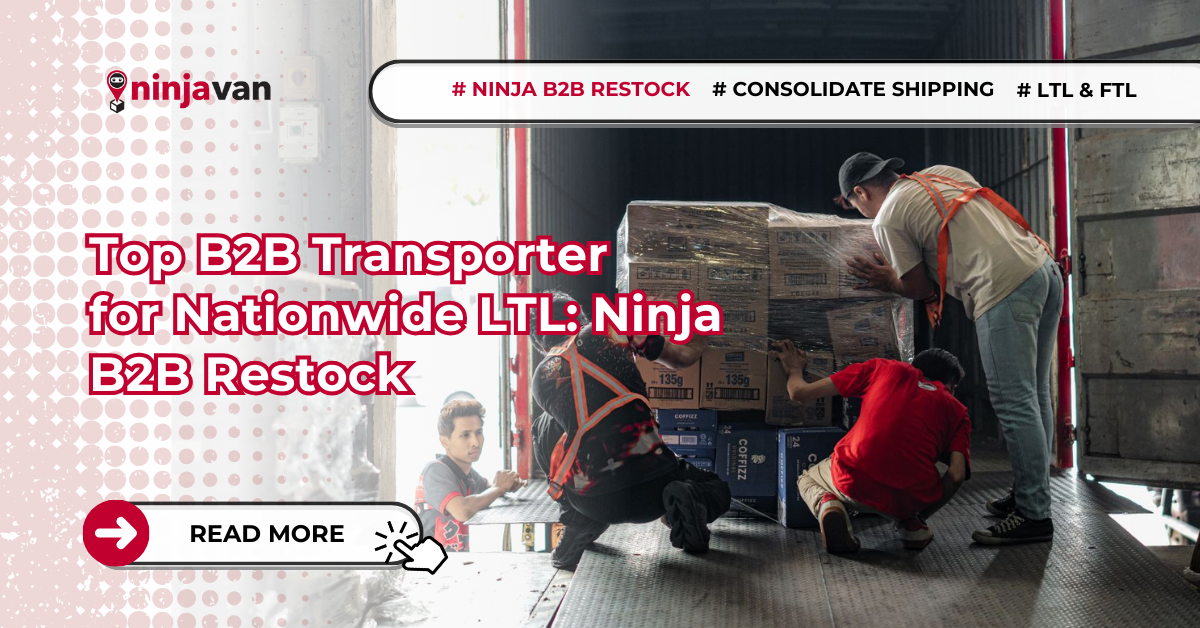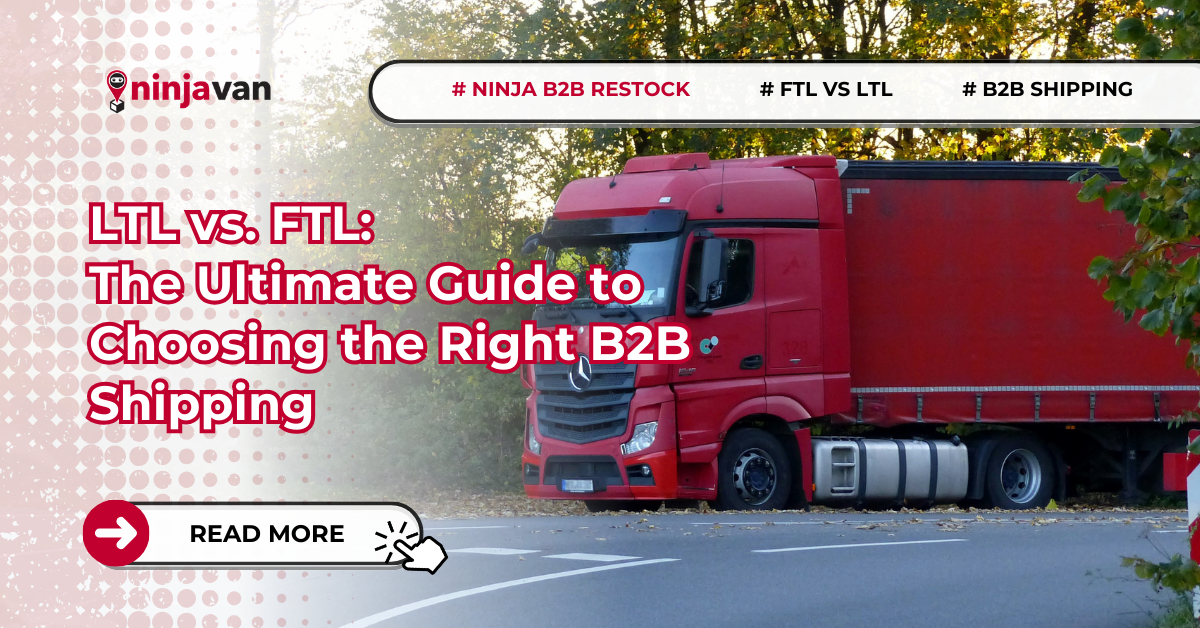If you’ve pegged your sights on venturing into the exciting realm of e-commerce, you’ve likely come across the term “dropshipping”. Touted as a low-investment business model, it piques the interest of budding entrepreneurs eager to establish their online shops. But what exactly is dropshipping and is it still a viable option in the contemporary Malaysian e-commerce ecosystem in 2024? Let’s unravel these questions together!
What is Dropshipping anyway?
Picture this: you start your own online store, selling a myriad of appealing products, but without physically having any stock on hand. Sounds too good to be true, right? Welcome to the world of dropshipping!
Dropshipping is a retail fulfilment method where a shop doesn’t keep the merchandise it sells in stock. Instead, when you sell a product, you buy it from a third party — typically a wholesaler or manufacturer on platforms like Aliexpress or Amazon — and ship it directly to your customer. Therefore, you, as the retailer, never actually see or handle the product.
Riding The Dropshipping Wave: Trend or Tail-End?
It is a mistake to view dropshipping as a fleeting trend, as it has consistently proven its viability and stability, establishing itself as a valuable e-commerce model on a global scale.
Malaysia, in particular, has seen a remarkable growth in its e-commerce sector, which offers an excellent environment for dropshipping businesses to thrive. E-commerce plays a critical role in Malaysia’s digital economy and is a crucial enabler for the growth of micro, small, and medium enterprises (MSMEs), which are the country’s economic backbone.
The Department of Statistics Malaysia (DOSM) reported that the total income from e-commerce transactions in 2021 was RM1.09 trillion, which represents a 21.8% growth compared to RM896 billion in 2020. This milestone, which exceeded the RM1 trillion mark for the first time, indicates that Malaysia is on track to achieve an e-commerce market size of RM1.65 trillion by 2025, as outlined in the National E-Commerce Strategic Roadmap (NESR).
The government has implemented extensive initiatives and programs to help MSMEs transition to e-commerce. The Malaysia Digital Economy Corporation (MDEC) has led the way by executing Go-eCommerce Onboarding and Shop Malaysia Online campaigns under Belanjawan 2021, encouraging the adoption of e-commerce and e-payments. As of December 31, 2021, these campaigns have successfully benefited over 830,000 MSMEs, with 365,900 new MSMEs onboarded in the past year. The efforts of MDEC and their e-commerce and e-payment partners have generated a collective income of RM7.39 billion for these MSMEs.
Furthermore, the government is driving additional e-commerce development through initiatives announced in the Budget 2022. With the success of the Go-eCommerce and Shop Malaysia Online campaigns in 2020 and 2021, the government has allocated RM250 million under the Budget 2022 to continue and enhance these programs.
Considering the compelling evidence of Malaysia’s continuous growth in the e-commerce industry, it’s clear that dropshipping is more than just a temporary trend within the nation. Instead, it represents a powerful, sustainable business model in a flourishing digital economy that stands to offer significant opportunities for entrepreneurs.
Reaping the Benefits of Dropshipping
Enhancing the original content, dropshipping provides several distinctive advantages that fit perfectly into the modern e-commerce landscape:
Reduced Capital Requirement: The most significant advantage of dropshipping is that it’s possible to launch an e-commerce store without having to invest thousands of Ringgit in inventory upfront. You only purchase a product after you’ve made the sale and have been paid by the customer.
Flexibility & Widened Product Offering: Dropshipping enables you to offer a varied selection of products. You can add items to your offerings based on trending market demands without worrying about unsold inventory.
Low Overhead Costs: Since the product itself is not in your hands, inventory costs are practically non-existent. Expenses for warehouse staff or a storage facility are eliminated, keeping your overhead low and manageable.
Minimal Risk: Not having to stock products reduces your business risk. If a product doesn’t sell as expected, you can simply remove it from your store without worrying about unsold inventory.
Location Independence: As long as you have an internet connection, you can run and manage your e-commerce business from anywhere in the world.
Starting Your Dropshipping Journey
Expanding on the earlier steps, setting up your dropshipping business involves these crucial processes:
Niche Selection: Choosing the right category of products is a vital first step in creating a profitable dropshipping business. A specific niche — such as eco-friendly baby products or bespoke men’s accessories — can help you target your marketing efforts and forge a strong brand identity.
Supplier Search: It’s essential to find credible suppliers for your store. Platforms like Amazon and Aliexpress have a pool of suppliers. Double-check their credibility, review their delivery timelines, and ensure they’re reliable.
Set Up Your Online Store: Plenty of easy-to-use platforms are available to help you launch your e-commerce website. These platforms provide various design templates, payment gateway integrations, and other functionalities catering specifically to dropshipping businesses.
Market & Sell: Begin advertising your products and reach out to your target audience through digital marketing strategies. Harness the power of search engine optimisation (SEO) by using targeted keywords related to your niche.
Customer Service Excellence: Providing fantastic customer service is essential in dropshipping, as it’s an excellent way to distinguish your business from competitors. This could include following up on orders, dealing with queries efficiently, or providing informative product descriptions.
Remember to consider the logistical complexities, supplier errors, and potential lower profit margins that may come with dropshipping. A clear understanding of these potential pitfalls will equip you with the knowledge to navigate these challenges effectively.
Countering the Challenges of Dropshipping In Malaysia
Despite the lucrative potential of dropshipping, it isn’t without its trials and tribulations, particularly in Malaysia.
Shipping Complexity: Dropshipping often relies on multiple suppliers located in different parts of the world. Navigating international shipping can be complicated, leading to potential delays, higher shipping fees, and fluctuating delivery times, all of which can affect customer satisfaction.
Limited Inventory Control: With dropshipping, retailers don’t usually maintain their own stock. This lack of control over inventory can lead to potential issues with item availability and shipping speed, affecting the entire customer experience.
Quality Assurance: Ensuring consistent product quality becomes a significant challenge in dropshipping. Since the retailer does not handle the product before it’s shipped to the customer, there may sometimes be discrepancies in product quality, potentially affecting customer trust and business reputation.
Intense Competition: The booming dropshipping market in Malaysia means increased competition. Often, businesses must reduce their markups to stay competitive, resulting in slim profit margins.
Supplier Issues: If your supplier is based in a different location or time zone, there might be complications in communication and slower response times, impeding smooth operations.
While the potential of dropshipping in the rapidly expanding Malaysian e-commerce market is immense, these challenges underline the importance of thorough research, strategic planning, and risk mitigation for anyone considering launching a dropshipping venture.
An Ode to Reliable Deliveries with Ninja Van
In a dropshipping model, the choice of delivery service can make or break your business. That’s where a service provider like Ninja Van comes in. As a trusted last mile delivery service in Malaysia, Ninja Van takes the hassle out of logistics so you can focus on growing your business. It proudly serves as one of Amazon’s delivery partners, ensuring your products reach your customers quickly and safely.
So, is dropshipping still effective in Malaysia in 2024? Absolutely! With thorough research, proper planning, and a reliable delivery partner like Ninja Van, you can confidently wade into the waters of the burgeoning e-commerce market.
Looking to streamline your dropshipping business? Consider Ninja Van. A trusted partner facilitating your business growth, one delivery at a time.







